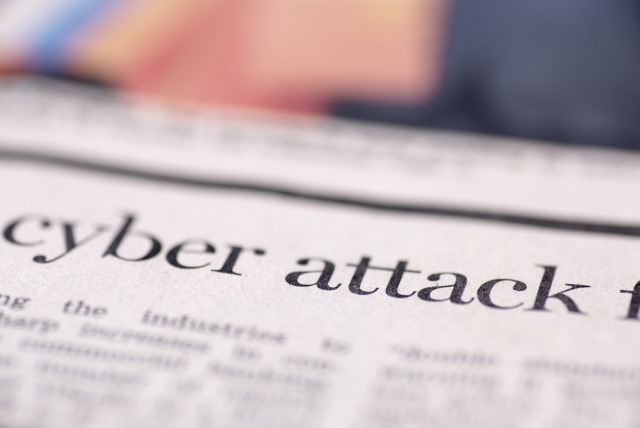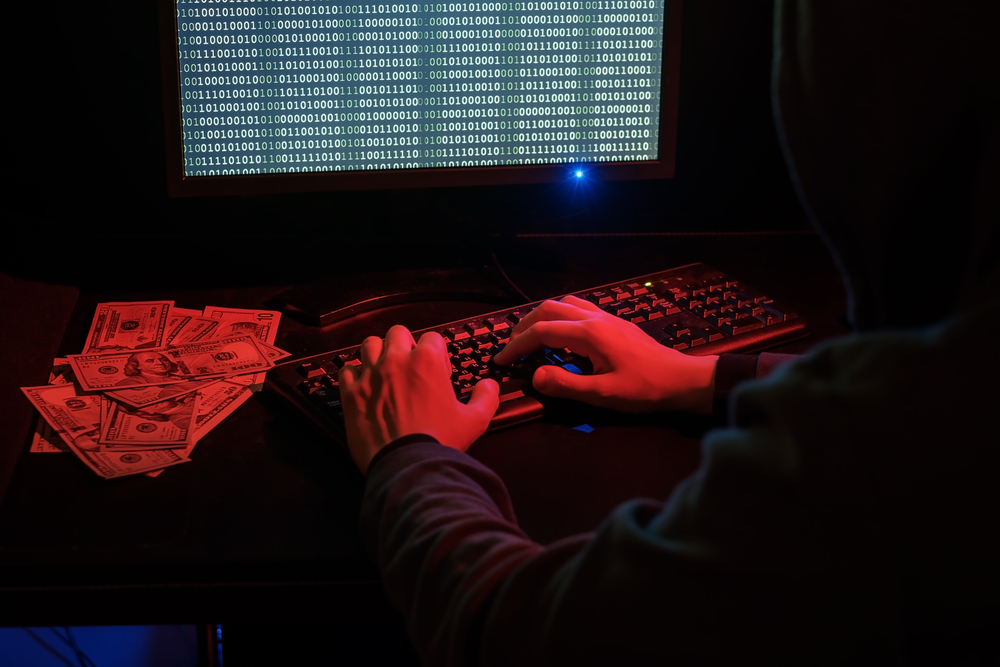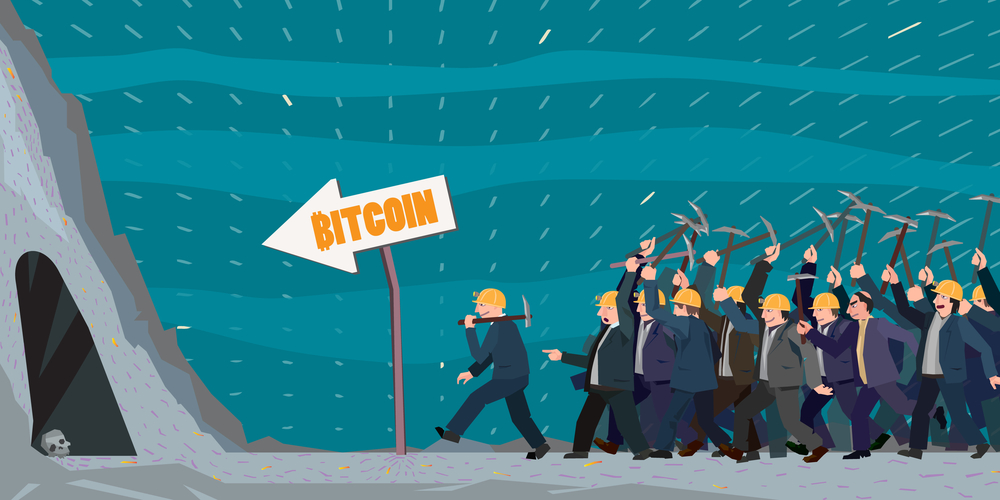
Critical vulnerability found in infrastructure and manufacturing applications
A critical remote code execution vulnerability has been discovered in two Schneider Electric applications heavily used in manufacturing, oil and gas, water, automation and wind and solar power facilities.
The vulnerability, discovered by cyber exposure company Tenable, could, if exploited, give cyber criminals complete control of the underlying system.

Cybercrime revenues hit $1.5 trillion a year
We reported earlier this month on the ways in which cyber criminals spend their ill-gotten gains.
The company behind those findings, Bromium, has now released more details from its research, which exposes a huge cybercrime-based economy and the professionalization of cybercrime.

Honeypot project reveals attackers are turning to automation
Most businesses are seeking to automate the more tedious aspects of their operations and some new research from security analytics platform Cybereason reveals that hackers are no exception.
The company set up a honeypot system masquerading as a financial services company and introduced security flaws in several stages.

Microsoft, Facebook and Symantec are among 34 companies pledging not to help governments launch cyberattacks
More than 30 technology companies have signed the Cybersecurity Tech Accord, making a number of pledges relating to cyberattacks. Microsoft, Facebook, Dell, HP and LinkedIn are just a few of the companies signing on the dotted line, promising -- among other things -- never to help a government launch cyberattacks against innocent citizens and enterprises.
The overall aim of the accord is to protect customers against malicious attacks by cybercriminal enterprises and nation-states. It is described as a "watershed agreement", and it sees a number of very big names coming together -- although there are a few notable exceptions.

How to spend like a cyber criminal
We all know that there's money to be made from cyber crime, with even entry level hackers being able to make as much as $42,000 a year. But what do they do with that money?
An 11 month study by virtualization-based security specialist Bromium looks at what cyber criminals are earning, and what they spend it on.

Variant of Mirai botnet used to target financial sector in January
Researchers at Recorded Future believe that a Mirai botnet variant, possibly linked to the IoTroop or Reaper botnet, was utilized in attacks on at least one company, and probably more, in the financial sector in late January of this year.
The botnet targeted one company using at least 13,000 devices, each with a unique IP address, and generated traffic volumes up to 30Gb/s.

Retail sector leads in data breaches as criminals target corporate networks
The retail sector suffered the most breaches in 2017, accounting for 16.7 percent followed by the finance and insurance industry at 13.1 percent and hospitality at 11.9 percent.
Geographically, North America is in the lead with 43 percent of breaches, followed by the Asia Pacific region at 30 percent, Europe, Middle East and Africa (EMEA) at 23 percent and Latin America at four percent.

The nine biggest threats organizations face in the next two years
The foundations of the digital world are set to be shaken in the next two years according to the findings of a new report from the Information Security Forum (ISF).
The Threat Horizon 2020 report highlights nine major threats, broken down into three themes, that organizations can expect to face by 2020 as a result of developments in technology.

How cyber criminals launder their gains
The proceeds of cyber crime make up an estimated eight to 10 percent of total illegal profits laundered globally each year, amounting to an estimated $80-$200 billion.
This is among the findings of a new report, commissioned by virtualization-based security company Bromium, into the economics of cyber crime and how criminals launder and 'cash out' the profits of their endeavors.

US says Russia launched a cyberattack on its energy grid
The US has introduced new sanctions against Russia after accusing the country not only of interfering in the 2016 election, but also launching a cyberattack on its energy grid.
Officials say that malware traced back to Moscow had been found to have infected operating systems on computers belonging to companies in the energy sector. The Department of Homeland Security is in no doubt that the Russian government is responsible.

The $600 billion cost of global cyber crime
We all know cyber crime is a major problem, but just how big is its worldwide impact? A new report from McAfee and the Center for Strategic and International Studies (CSIS) reckons it costs businesses almost $600 billion a year or 0.8 percent of global GDP.
Global losses in 2014 were estimated at $445 billion and the report puts the increase down to criminals quickly adopting new technologies, the ease of engaging in cyber crime -- including an expanding number of cyber crime centers -- and the growing financial sophistication of top-tier criminals.

White House joins UK government in blaming Russia for NotPetya
The US government has joined the government of the UK in pointing the finger of blame at Russia for the NotPetya cyberattacks. The ransomware/destructoware hit computers around the world last June.
After speculation that the attack was a state-sponsored one carried out by Russia, this position has now been confirmed as the White House accused the nation of the "reckless and indiscriminate." At the same time, the UK's National Cyber Security Centre said that the Russian military was "almost certainly" responsible for the attack.

Cyber criminals in 'gold rush' to exploit cryptocurrencies
A new report from risk management and threat intelligence company Digital Shadows shows that cyber criminals are looking to exploit the boom in interest and adoption of cryptocurrencies.
The study highlights the most common methods used by these criminal actors, which include crypto jacking, account takeovers, mining fraud and scams against initial coin offerings (ICOs).

How cybercriminals are attacking machine learning
Machine learning (ML) is getting a lot of attention these days. Search engines that autocomplete, sophisticated Uber transportation scheduling and recommendations from social sites and online storefronts are just a few of the daily events that ML technologies make possible.
Cybersecurity is another area where ML is having a big impact and providing many benefits. For instance, ML can help security analysts shorten response times and dramatically improve accuracy when deciding if a security alert is an actual threat or just a benign anomaly. Many view ML as the primary answer to help save organizations from the severe shortage of skilled security professionals, and the best tool to protect companies from future data breaches.

Hackers gear up to target Winter Olympics
With the 24th Winter Olympics due to start in Pyeongchang, South Korea in a few weeks, athletes are not the only ones preparing for the event.
A report from security analytics platform Cybereason shows that hackers and cyber criminals are gearing up too, the scale and cost of the event making it a prime target.
